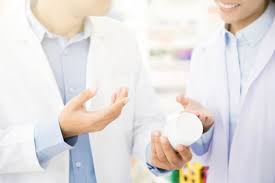The Importance of Health and Medication Education: Empowering Informed Decisions
In an era where health information is readily accessible yet often overwhelming, understanding the nuances of health and medication is crucial. Health and medication education empowers individuals to make informed decisions, manage their well-being effectively, and navigate the complexities of healthcare systems. This article explores the significance of being well-informed about health matters and provides practical tips for effective medication management.
Holistic programs often involve alternative therapies like sound baths or forest therapy. These options help individuals reset and rediscover mental clarity in serene, natural environments. Such innovative methods enhance the overall recovery experience.
Understanding Health Education
Health education is a process that informs and motivates individuals to adopt healthy behaviors. It encompasses a wide range of topics, including nutrition, exercise, disease prevention, and mental well-being. By increasing awareness and knowledge, health education aims to:
- Promote Healthy Lifestyles: Encourage habits that reduce the risk of chronic diseases.
- Prevent Illnesses: Provide information on vaccinations, screenings, and early detection.
- Enhance Quality of Life: Improve overall well-being through informed choices.
The Significance of Medication Education
Medication education is a critical component of health literacy. It involves understanding how medications work, their potential side effects, and the importance of adherence to prescribed regimens. Benefits of comprehensive medication education include:
- Improved Treatment Outcomes: Correct usage enhances the effectiveness of medications.
- Reduced Adverse Effects: Awareness of side effects leads to prompt management.
- Prevention of Drug Interactions: Understanding interactions prevents harmful consequences.
Empowering Patients Through Knowledge
Being informed transforms patients from passive recipients to active participants in their healthcare. Knowledge empowers patients to:
- Ask Relevant Questions: Engage in meaningful discussions with healthcare providers.
- Make Informed Choices: Evaluate treatment options based on accurate information.
- Manage Chronic Conditions: Implement effective self-care strategies for long-term illnesses.
Accessing Reliable Health Information
In the digital age, a plethora of health information is available at our fingertips. However, not all sources are credible. To ensure you are accessing reliable information:
- Consult Healthcare Professionals: Doctors, nurses, and pharmacists are trusted sources.
- Use Reputable Websites: Look for sites ending with .gov, .edu, or reputable organizations.
- Stay Skeptical of Miracle Cures: Be cautious of information that seems too good to be true.
For personalized advice and answers to specific medication questions, you can ask a pharmacist anything to receive accurate and professional guidance.
Utilizing Technology in Health Education
Technology has revolutionized the way we access health information. Leveraging digital tools can enhance your understanding and management of health:
- Health Apps: Track fitness, diet, and vital signs with user-friendly applications.
- Online Consultations: Access healthcare providers remotely for advice and prescriptions.
- Educational Videos and Webinars: Learn about health topics through visual and interactive content.
Tips for Effective Medication Management
Managing medications effectively is essential for achieving desired health outcomes. Here are practical tips to help you stay on track:
- Maintain an Updated Medication List:
- Include all prescription drugs, over-the-counter medications, and supplements.
- Share this list with every healthcare provider you visit.
- Understand Your Medications:
- Know the purpose, dosage, and potential side effects of each medication.
- Read the patient information leaflet that comes with your medicine.
- Set Reminders:
- Use pillboxes, alarms, or smartphone apps to remember dosing schedules.
- Establish a routine by associating medication times with daily activities.
- Follow Prescribed Instructions:
- Do not alter doses without consulting your doctor.
- Complete the full course of medication even if you feel better.
- Store Medications Properly:
- Keep medicines in their original containers.
- Store them in a cool, dry place away from children and pets.
- Communicate with Your Pharmacist:
- Discuss any concerns or side effects experienced.
- Seek advice before taking new over-the-counter drugs or supplements.
Overcoming Barriers to Health Education
Several obstacles can hinder effective health and medication education:
- Health Literacy: Complex medical terminology can be confusing.
- Solution: Ask providers to explain information in simple terms.
- Cultural Beliefs: Personal beliefs may affect perceptions of healthcare.
- Solution: Communicate openly with providers about your beliefs and preferences.
- Accessibility: Limited access to healthcare resources in some areas.
- Solution: Utilize online resources and telehealth services for information.
The Role of Healthcare Providers
Healthcare professionals play a pivotal role in patient education. They can:
- Provide Accurate Information: Offer evidence-based advice tailored to individual needs.
- Encourage Questions: Foster an environment where patients feel comfortable seeking clarification.
- Support Decision-Making: Guide patients through choices regarding treatments and lifestyle changes.
The Impact of Health Education on Public Health
Well-informed individuals contribute positively to public health outcomes by:
- Reducing Disease Spread News: Understanding prevention measures decreases transmission of illnesses.
- Decreasing Healthcare Costs: Effective self-management reduces hospital visits and medical expenses.
- Enhancing Community Health: Educated communities adopt healthier practices collectively.
Conclusion
Health and medication education is an indispensable tool in today’s healthcare landscape. By taking proactive steps to educate yourself, you empower your ability to make informed decisions, effectively manage your health, and improve your quality of life. Remember to seek reliable sources, communicate openly with healthcare professionals, and leverage technology to enhance your understanding. Your health is your most valuable asset—investing in education is investing in a healthier future.
